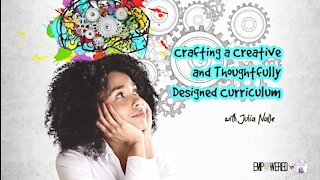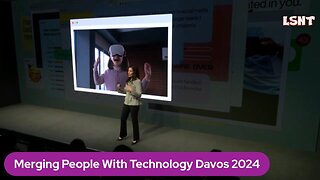Why a Relevant and Adaptive Curriculum is Vital in the Digital Era #smart #young #digital #newera
In the rapidly evolving digital era, it is crucial for educational systems to confront the new challenges presented by technological advancements and the increasingly complex needs of society. In this context, a relevant and adaptive curriculum becomes vital to ensure that education can prepare future generations with relevant skills and knowledge.
A relevant curriculum refers to a curriculum that reflects the real world and connects learning to students' everyday lives. In the digital era, technology has transformed the way we work, communicate, and learn. Therefore, a relevant curriculum should incorporate an understanding of digital technology, digital skills, and digital ethics as integral parts of learning. Additionally, the curriculum should reflect the latest developments in fields such as artificial intelligence, data analytics, programming, and other emerging technologies that may serve as foundations for future jobs and life.
In addition to relevance, adaptability is also a crucial factor in the curriculum in the digital era. The rapid development of technology means that the needs and demands of the job market also change rapidly. An adaptive curriculum can adjust to these changes, updating and integrating new learning materials in line with the latest developments. As a result, students will have relevant skills and the ability to quickly adapt to future challenges.
A relevant and adaptive curriculum in the digital era also involves a student-centered approach. In this context, education should encourage students to become lifelong learners, focusing on developing skills such as problem-solving, creativity, critical thinking, collaboration, and digital literacy. The curriculum should enable students to learn actively, participate in real-world projects, and apply their knowledge in relevant contexts.
Overall, in the ever-changing digital era, a relevant and adaptive curriculum becomes highly important in preparing future generations. By integrating digital technology, relevant skills, and student-centered learning approaches, this curriculum can ensure that students have the knowledge and skills necessary to succeed in an increasingly interconnected and complex society
-
 5:35
5:35
WTMJMilwaukee
4 years agoAdapting Education to the New Learning Environment
5 -
 59:41
59:41
Empowering Homeschool Conversations
3 years agoCrafting a Creative and Thoughtfully Designed Curriculum
162 -
 6:36
6:36
Lara Trump
1 year agoOur schools need to prepare our children for the FUTURE and not focus on "BEING WOKE"!
8.74K67 -
 28:42
28:42
Catching Fire News
1 year agoHome School Curriculum; From Fringe to Mainstream
5 -
 29:28
29:28
FanaticVoyage
4 months agoThe Future Of Education Technology and Ai Tutoring - Starting With The Children Of Course
24 -
 0:58
0:58
On Demand Education Marketplace
1 year agoChanging the Future of Education
57 -
 0:43
0:43
DrThomasMaples
1 year agoTeaching the Next Generation
1 -
 3:17
3:17
Golda01
4 months agoTRENDS IN EDUCATIONAL TECHNOLOGY
7111 -
 4:09
4:09
Patriots Must Rise
6 months agoWhat Is the Reality of Current Public Education System Looking Forward into the Future.
36 -
 1:03
1:03
SWNS
1 year agoTop differences between digital and analog study habits in children
14